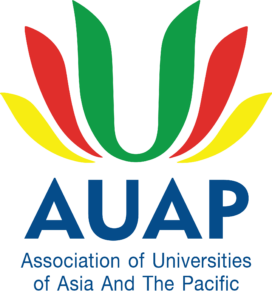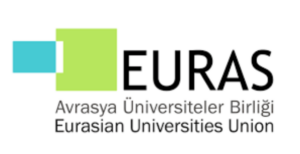Webinar Recap: How IAUP institutions are effectively using Artifical Intelligence
On September 18th, the International Association of University Presidents (IAUP) hosted an insightful webinar exploring how higher education institutions across the globe are implementing artificial intelligence (AI) to enhance teaching, streamline operations, and strengthen student and alumni engagement.
The session was moderated by Dr. Devorah Lieberman, President Emerita of the University of La Verne (California) and Senior Consultant to the IAUP, who emphasized the importance of practical examples in guiding universities worldwide. She noted that while AI is still an evolving field, sharing case studies from campuses can help leaders make informed decisions on how best to integrate these technologies.
“We are all learning. None of us are perfect,” Dr. Lieberman remarked. “But by exchanging examples, we can inspire one another as we explore AI’s potential.”
The discussion highlighted not only the practical applications of AI but also the challenges and strategic considerations universities must navigate to remain competitive and inclusive in the 21st century.
AI for Student Engagement and Recruitment
IAUP President Shawn Chen emphasized the power of AI in enhancing the student experience and recruitment process. He noted that AI can serve as a guided tour for prospective students, allowing them to explore campuses virtually, ask questions, and engage with sample classrooms and events. “All the applicants want to know is why they would enroll,” Dr. Chen explained. AI chatbots and virtual assistants provide immediate answers, keeping students engaged year-round and fostering a deeper connection to the university before they even set foot on campus.
Leveraging Alumni Support
The conversation also underscored the importance of alumni in supporting universities financially and strategically. Dr. Chen shared the example of a graduate who founded a major company PopMart valued at $330 billion and recently donated $10 million to support the university’s new students. AI can analyze alumni data, identify potential supporters, and personalize outreach efforts, making alumni engagement more effective. According to Dr. Chen, “A successful university cannot thrive without support from its alumni.”
AI in Institutional Growth
President Fernando León García highlighted the broader role of AI in institutional development, including research outcomes, graduate employment, and overall university impact. He stressed that AI adoption has helped his institution significantly advance its performance metrics. Dr. Leon García encouraged universities to adopt AI in a structured and systematic manner, starting where it is easiest, such as administrative and operational tasks, before expanding into teaching and learning. “Do not disregard it. If you disregard it, it will impact your university,” he cautioned.
President Eunjoo Lee added that AI allows faculty and staff to focus on meaningful, creative work rather than repetitive administrative tasks. She emphasized the importance of AI literacy for students, preparing them for a competitive job market while enabling them to lead more productive and fulfilling lives. Dr. Lee also highlighted the value of global collaboration to address challenges like fundraising and investment for AI initiatives.
Dr. Chen summarized the stakes: “AI is everything. In the future, it doesn’t matter whether you use it or not—if you adopt it, your school will sustain; if you don’t, you may disappear.”
Challenges and Concerns
Despite the advantages, implementing AI in universities is not without challenges. Dr. Eunjoo Lee pointed out concerns related to academic integrity, particularly the potential for cheating in assignments and online exams. Data privacy and ethical use of AI were also raised as pressing issues. These challenges require careful policy design, clear guidelines, and ongoing faculty training.
Creating Inclusive and Differentiated Classrooms
The panel also explored how AI can enhance inclusivity and differentiate instruction. Dr. Chen described classrooms where AI tutors provide support to every student, allowing them to ask unlimited questions without fear or hesitation. This approach benefits students who may be shy, less confident, or at varying skill levels in subjects like mathematics or English. García reinforced this, highlighting AI tools that adapt to individual student needs, ensuring equitable access to learning resources.
President Lee provided examples of whole-campus initiatives in which AI is integrated into content creation, teaching, and evaluation. These AI-augmented classrooms foster active participation, collaboration, and creativity. Students even co-create educational materials with AI, resulting in richer, more engaging learning experiences.
The Future of AI in Higher Education
Looking ahead, Dr. Fernando cited a report from Arizona State University, emphasizing that the next stage of learning involves AI-responsive universities and graduates. He argued that institutions must not only become AI-literate but AI-ready and resilient, capable of thriving through disruption rather than merely surviving it. This entails rethinking operations, curriculum design, and graduate outcomes to create an AI-augmented ecosystem that moves with learners across their educational journey.
Dr. Chen echoed this sentiment, encouraging universities to start small with AI tools, even free ones, and scale gradually. Both he and Dr. Lee highlighted the importance of international collaboration and shared learning through conferences, workshops, and scholarships to support broader AI integration.
The webinar concluded with a call to action for universities worldwide. The panelists—Presidents Dr. Shawn Chen, Dr. Fernando León García, and Dr.Eunjoo Lee—urged institutions to embrace AI strategically and systematically, enhance student engagement, leverage alumni support, and create inclusive learning environments. AI, they emphasized, is no longer optional; it is central to sustaining and advancing higher education in a rapidly evolving world.
The discussion demonstrated that AI has the potential not only to transform administrative efficiency and classroom learning but also to reshape the entire ecosystem of higher education. Universities that adopt AI thoughtfully, invest in AI literacy, and foster global collaboration will be best positioned to thrive in the future.
These topics will be addressed more deeply at the October 13-15 IAUP 60th Anniversary and Semi-Annual meeting at Cyber Seoul University, in Seoul, South Korea.












